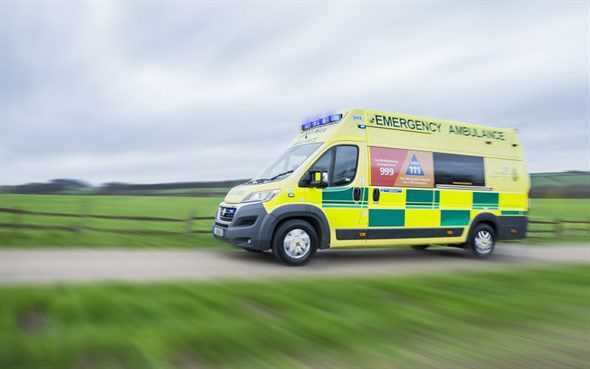East Midlands Ambulance Service workers (EMAS) have begun strike action today, as part of a national pay dispute with the government.
At EMAS, industrial action is taking place today (Wednesday, December 21), and will affect up to 50 per cent of staff. Strike action will end at 06:00 tomorrow (Thursday, December 22), and is set to continue from 06:00 on December 28, to 06:00 on December 29.

EMAS said that it would aim to minimise the impact of strike action on patients.
However, the action means patients who have non life-threatening conditions will have to wait longer for an ambulance, they added.
“During the period of the dispute, we will do all we can to minimise the impact on patient safety and will continue to work very closely with trade union colleagues, regional service providers and NHS Employers,” said Ben Holdaway, Director of Operations at EMAS.
“Our operational teams have developed contingency plans to aim to maximise the number of ambulance staff and volunteers we have available to respond to patients, as well as clinical staff able to carry out remote clinical assessments.
“However, we anticipate that on days where there is industrial action that there will still be fewer ambulances available and therefore our responses to our patients will, inevitably, be much slower on the day.
“Therefore our 999 control rooms, where possible, will carefully assess and prioritise an ambulance response for those who need it most, and this may only be where there is a threat to life.”
In response to the strikes, the government’s Health Minister Will Quince, has urged members of the public to take “extra care” and to avoid “risky activity”, and unnecessary car journeys.
“If there is activity that people are undertaking, whether it’s – for example – contact sport, they may want to review that,” he added.
EMAS have advised that patients should continue to call for an ambulance as normal if they experience a life-threatening emergency and should continue to access other more appropriate services for any other illnesses or injuries such as NHS111 online or contacting their local Urgent Treatment Centre.
“You may be asked to make your own way to hospital if it is safe to do so. This may be via a friend or family member’s car or taxi,” they added.



